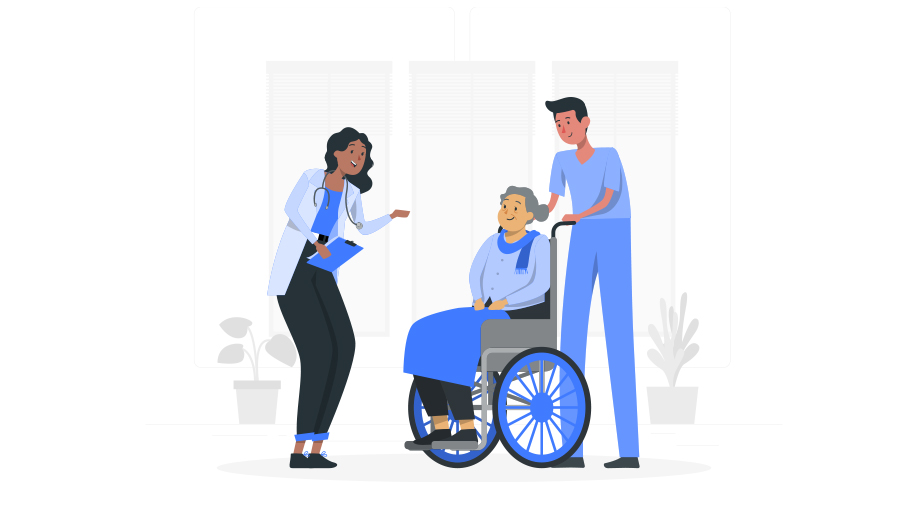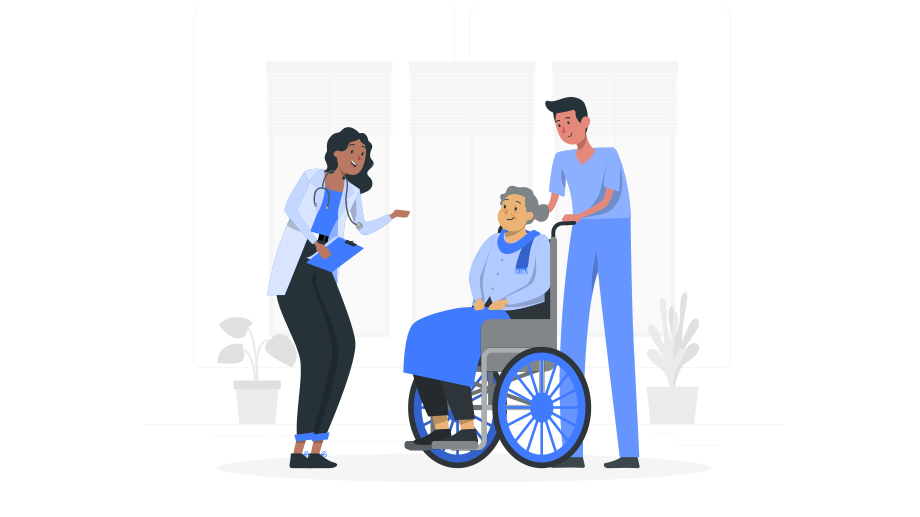
In December 2016, President Obama signed the 21st Century Cures Act into law, ushering in a new era of efficiency, cost reduction, and improved care quality for the personal care and home healthcare industry. This landmark legislation, specifically Section 12006, encourages state agencies to implement an electronic visit verification system (EVV System) for Medicaid-funded personal care services and home health care services.
Under this law, states are incentivized to design, develop, and implement their own EVV Systems, with the promise of up to 90 percent federal funding for implementation and up to 75 percent funding for ongoing operations and maintenance. Failure to adopt an EVV System may result in the loss of up to 1 percent of federal medical assistance.
But what exactly is an EVV System and why is it so crucial? An EVV System, short for electronic visit verification, is a comprehensive tool that electronically verifies various aspects of in-home care visits. These aspects include the type of service performed, the individual receiving the service, the date and location of service delivery, the caregiver providing the service, and the start and end times of the service.
By enabling caregivers to “clock in” and “clock out” using an EVV System, it acts as a reliable time and attendance verification tool, capturing real-time data on the care services rendered and the location where they were provided. Additionally, caregivers can record additional information related to the type and specifics of the care provided.
The benefits of implementing an EVV System in healthcare are numerous. It offers a reliable and error-free means for care providers and home care workers to capture care delivery data in real-time. The system ensures digital verification of visits as outlined in the care plan, automates time and attendance tracking for caregivers, and provides a paperless, digital approach to recording the type and details of care and services provided to patients.
One of the key advantages of an EVV System is the ability for program administrators to access comprehensive reports and analytics, allowing for better validation of visits, verification of care, and driving efficiency in the overall process. The system streamlines operations, reduces costs, and mitigates fraud, all while improving the quality of care delivered.
In this blog, we will delve deeper into the advantages and functionalities of EVV Systems, highlighting the importance of adopting this technology for modern healthcare organizations. Join us as we explore the transformative power of electronic visit verification and its positive impact on the personal care and home healthcare industry.
The Federal Incentives
The states are encouraged to design, develop and implement an EVV System, and the law entitles up to 90 percent federal funding for doing so and subsequently, with up to 75 percent federal funding for operations and maintenance. Federal funding is available for all the states that put in place their own EVV System or uses a contractor.
And by not implementing an EVV System, the states run the risk of losing up to 1 percent federal medical assistance.
Why an EVV System?
Apart from the incentives provided by the federal government, the state agencies can widely benefit from an EVV System. An EVV System has a positive impact overall and is known to drive efficiency, reduce cost and mitigate fraud.
How EVV Systems Work-
EVV stands for electronic visit verification. Quoting from the mandate:
The term “electronic visit verification system” means, with respect to personal care services or home health care services, a system under which visits conducted as part of such services are electronically verified with respect to–
(i) the type of service performed;
(ii) the individual receiving the service;
(iii) the date of the service;
(iv) the location of service delivery;
(v) the individual providing the service; and
(vi) the time the service begins and ends.
So, a modern EVV System just acts as a time and attendance verification tool for the in-home caregivers/workers by enabling them to “clock in” and “clock out” to record time and the location at which the care services were rendered. The EVV System also should provide the ability for the caregivers to record additional information pertaining to the type of care and the care provided itself.
Benefits of EVV System
Electronic Visit Verification Systems offers a reliable, dependable and error-free means for care providers and home care workers to capture care delivery data in real-time while they are providing the services. An EVV System brings in loads of benefits such as digital verification of the visits as outlined in the care plan, automates time and attendance of caregivers, provides a paperless, digital means to record the type of care and services provided to the patient.
Since the data is recorded digitally the program administrators not only can verify and validate the visit and the type of care but also will be able to pull-up various reports and analytics to drive efficiency in the process.
About allGeo EVV Platform
Abaqus, Inc. is a provider of a powerful platform, allGeo, for EVV solution for in-home care providers. allGeo leverages the advancements in the modern technology in the smartphones/sensors, apps, location-based services, and cellular communication to provide you with a scalable and a robust in-home care workforce solution to help meet EVV requirements for Medicaid compliance.
With allGeo, the healthcare providers simply clock in and out from the place of care. The system automatically verifies the visit of the location via geofencing technology. The caregiver easily captures additional information via the digital forms on the mobile app. The mobile forms can be customized to suit your needs and business workflow. The system also offers powerful, customized reporting for time and hours (for payroll), mileage, costing needs, etc.
Additionally, the allGeo platform also supports a powerful IFTTT (If-this-then-that) workflow rules engine. The IFTTT rules engine translates real-world events to trigger business actions.
With this, you can define your business workflow and allgeo can automate field operations using real-world triggers involving people, place and time. The real-world events that trigger automatic actions can be highly customized. For example, many of our customers that provide home care services use the IFTTT customization to Automate caregiver safety and threat alerts.
allGeo is a trusted EVV solution partner for some the leading care providers including the home healthcare staffing industry for Medicaid compliance.
